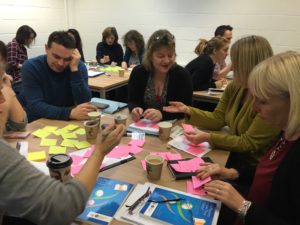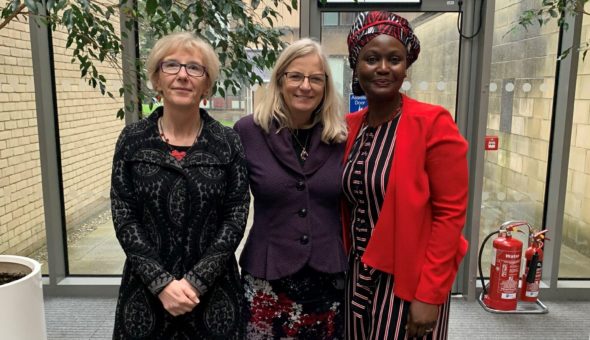As already reported on the University Blog, together with Wiltshire Local Authority, I recently launched a Toolkit for Parental Engagement.
Through the research in the field, (For example: Goodall and Vorhaus 2011, Goodall 2012, Goodall and Montgomery 2013, See and Gorard 2014, Huat See and Gorard 2015), we know that parental engagement in children’s learning is one of the best levers to support children and, importantly, support disadvantaged learners. The pilot of this toolkit is part of Wiltshire’s programme of support, particularly around those students who qualify for pupil premium support.
The forms of parental engagement which make a difference to students are those which take place in the home, which support the attitude toward learning in the home, rather than those which aim to get parents into school. For many schools, this requires a shift in emphasis for their work with parents; the toolkit supports this shift.
The toolkit consists of two main elements. The first is an action plan, which schools build after looking at where they want to be, and what barriers they might face along the way. The action plan allows schools to be clear about what they will do, and importantly, how they will know and evidence if they have achieved their aims.
The second part of the toolkit is a detailed evaluation form. Previous research (Guskey 2002, Goodall, Day et al. 2005, Harris, Day et al. 2006) has shown both that schools often fail to evaluate their interventions, and that one of the main blocks to change is the institution itself. Based around the framework developed by Guskey (Guskey 2000) the toolkit provides schools with a scaffold to not only see what they have accomplished in relation to parental engagement, but to evaluate whether the school itself has changed in the process, and what changes still need to take place.
The pilot project began in January 2016, and will conclude in January 2017, and is partially funded by the Public Engagement Unit at the University of Bath. Schools have come together twice so far, and will come together for a final, celebration event early in 2017.
Although we are only part way through the project, schools are already reporting changes in their practices, and in their relationships with parents.
You can follow the progress of the pilot on the project blog, and by following the twitter hashtag, #wpetk.
Goodall, J. (2012). "Parental engagement to support children's learning: a six point model." School Leadership & Management 33(2): 1-18.
Goodall, J., C. Day, G. Lindsey, D. Muijis and A. Harris (2005). Evaluating Impact of Continuing Professional Development. London, Department for Education and Skills.
Goodall, J. and C. Montgomery (2013). "Parental involvement to parental engagement: a continuum." Educational Review: 1-12.
Goodall, J. and J. Vorhaus (2011). Review of best practice in parental engagement. London, Department of Education
Guskey, T. R. (2000). Evaluating professional development. Thousand Oaks, Ca, Corwin Press.
Guskey, T. R. (2002). "Does it make a difference? Evaluating professional development." Educational Leadership: 45 - 51.
Harris, A., C. Day, J. Goodall, G. Lindsay and D. Muijs (2006). "What difference does it make? Continuing Professional Development in Schools." Scottish Journal of Educational Research 37: 90 - 98.
Huat See, B. and S. Gorard (2015). "The role of parents in young people’s education—a critical review of the causal evidence." Oxford Review of Education(ahead-of-print): 1-21.
See, B. H. and S. Gorard (2014). What do rigorous evaluations tell us about the most promising parental involvement interventions? A critical review of what works for disadvantaged children in different age groups, Nuffield Foundation.
Respond


